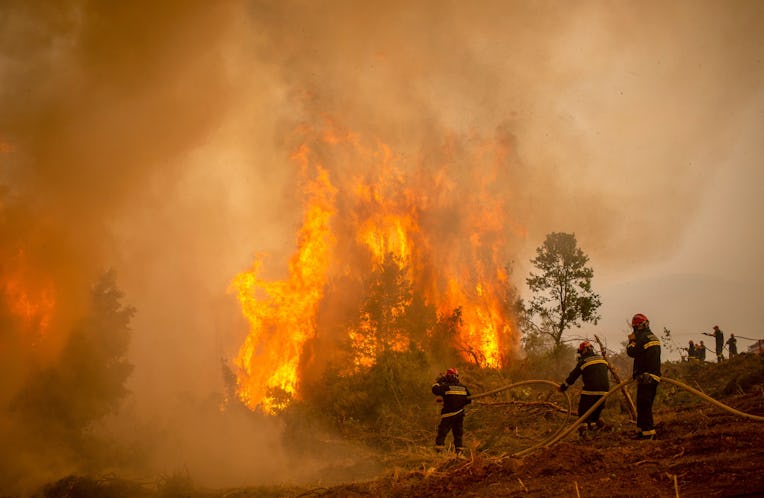Things Are Bad but We’re Not Completely Fucked (Yet)
Total climate fatalism is not the only option

On Monday, like clockwork, the United Nations’ Intergovernmental Panel on Climate Change emerged from its beaker-filled scientific lair to bum everyone out with its latest major report on how much the human race has continued to fuck up climate change since the IPCC’s last tentpole assessment in 2014.
The facts, which have been summarized by many publications, are, one might say, deeply soul crushing. For example, the report says, the planet is likely already locked into a 1.5 degrees Celsius rise in global temperatures over the next two decades, which will bring about more extreme heat, floods, droughts, tropical storms, and rising sea levels, as well as other devastating effects that are “irreversible for centuries to millennia.”
But please, before you consider self-immolation (which is understandable but would only add more greenhouse gases to the atmosphere) or sinking into a deep pit of climate fatalism (which is also understandable but not very helpful at the moment), we might not be 100 percent fucked yet. Possibly only 80 percent. After all, the impact of climate change doesn’t have to be all or nothing; a spectrum exists, and although some terrible consequences can’t be stopped by now, it’s not an inevitability that all terrible consequences will follow. The report says as much here:
From a physical science perspective, limiting human-induced global warming to a specific level requires limiting cumulative CO2 emissions, reaching at least net zero CO2 emissions, along with strong reductions in other greenhouse gas emissions. Strong, rapid and sustained reductions in CH4 emissions would also limit the warming effect resulting from declining aerosol pollution and would improve air quality.
And here:
Scenarios with low or very low greenhouse gas (GHG) emissions (SSP1-1.9 and SSP1- 2.6) lead within years to discernible effects on greenhouse gas and aerosol concentrations, and air quality, relative to high and very high GHG emissions scenarios (SSP3-7.0 or SSP5-8.5). Under these contrasting scenarios, discernible differences in trends of global surface temperature would begin to emerge from natural variability within around 20 years, and over longer time periods for many other climatic impact-drivers (high confidence).
Translated from nerdspeak, that means, as Gizmodo puts it, “[d]ecarbonization is our only path to survival.” So, great news, at least there is a path. Now all we have to do is take it <3